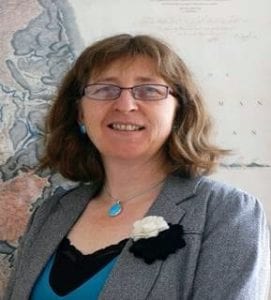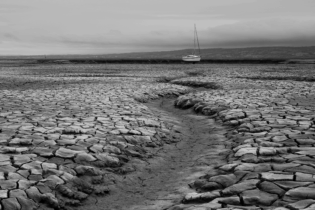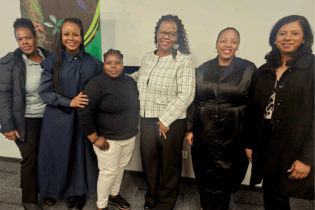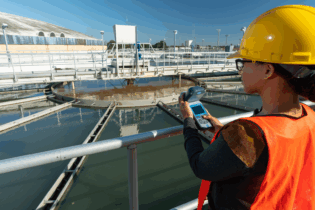
Ruth Allington, Chairperson of the IUGS Task Group on Global Geoscience
Extinction probably isn’t at the forefront of everybody’s mind right now, because most people are preoccupied with more immediate concerns; how will I afford to educate my child? Why can’t I get a decent WiFi connection? Fortunately, geoscientists are the type of people with the imagination to dwell on imponderables that are seemingly remote from the consumer circus; this is precisely why they hold the key to the future of the planet. It does, however, require an injection of professionalism into the industry; an insight that arose in a keynote session at the 35
th International Geological Congress (IGC), the “geoscience Olympics” which takes place from 27 August to 4 September this year at the Cape Town International Convention Centre (CTICC).
The fact is that, as Wits University’s Professor Bob Scholes told the audience, as the earth system processes have shaped the development of the human race, the development of the human race has shaped the development of global earth systems.
Anthropogenic change
“Over three million years, human ancestors, African savannas and the global climate have co-developed, each influencing each other in powerful ways,” says Scholes. The use of fire, the domestication of livestock, the development of language and cognition, and the rise of complex agricultural societies: all these “key branching points in human development were linked to changes in earth system properties”, adds Scholes. Now we have reached the stage of “human dominance of the Earth System”; already, anthropogenic climate forcing has reached the point of no return, with global warming moving at an extraordinary pace. Clearly, it’s time for geoscience to take a much more commanding role than it has in the past.
Promoting professionalism
Ruth Allington, Chairperson of the IUGS Task Group on Global Geoscience Professionalism, pointed out in her presentation that geoscience serves society through undertaking research; advancing knowledge; applying geoscientific skills and technology to industrial problem solving; providing expertise, interpretations, and opinions on which others rely for key decision making; and communicating, teaching and training. It provides key inputs to:
- the support of economic and social development,
- the sustainable use of water, and
- the sustainable supply of raw materials.
It helps protect the public by evaluating the risk of natural hazards and the causes and effects of climate change. It holds the key to the triple bottom line of harmonising economic-, social- and environmental impacts of development.
This will not happen unless the geoscientific community embraces the professionalism that will enable it to communicate effectively with all stakeholders. “Seeing yourself as a professional does not dilute from scientific endeavour; it completes, enhances, makes more impact,” said Allington.
‘Virtuous’ circle
Better education, more relevant research, more sustainable industry: it’s a virtuous circle that professionalism and ethics can set in motion. There is nothing to lose: “Developing soft skills – the effective management of people, project management, leadership, listening, mediating – doesn’t reduce academics to automatons,” said Allington. “On the contrary, food without seasoning is bland and reduces eating to the mere taking in of fuel. Professionalism seasons what you already do well.”
Co-president of the IGC and one of the top global 100 women in mining, Jeannette McGill, agrees: “The geoscience industry realises how important professionalism is and this congress emphasised it. The bar is set and geoscience professionals are welcome to come and engage on how best to implement higher standards of ethics in our profession.”
For more information about the IGC visit
http://www.35igc.org/. Join the 35
th IGC Facebook page at
https://www.facebook.com/35thigc/.







